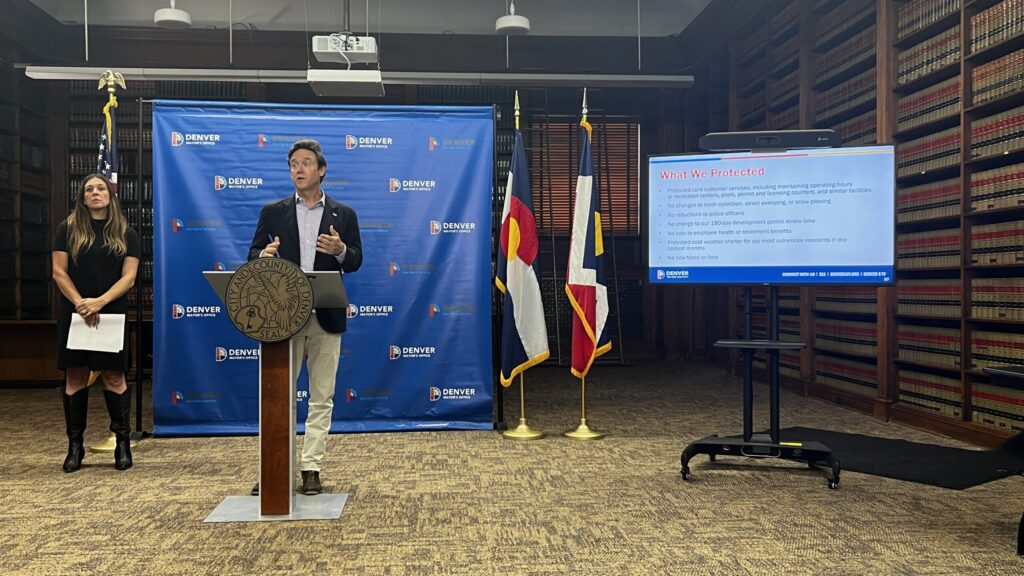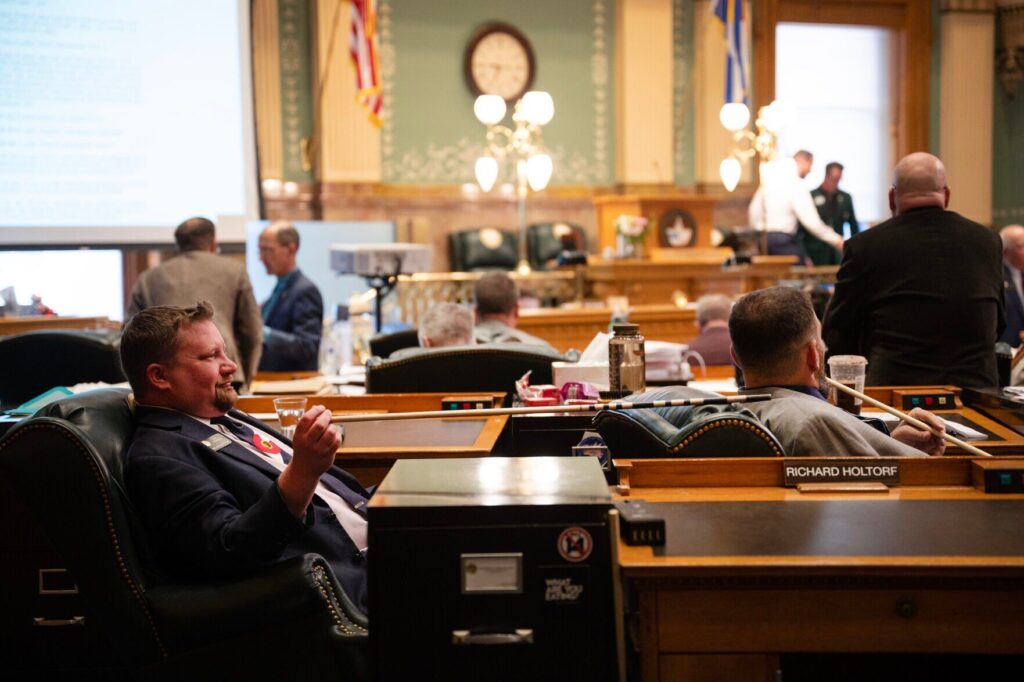INSIGHTS: Colorado takes the R-word out of the books and makes it history

We don’t use that word in Colorado anymore. Not in our laws and not in the government offices that serve all the people. No one deserves to be put down by public servants. No one.
It was two Republicans who led the way on Senate Bill 96 to erase the R-word from the books and instead refer to those with Down syndrome as Coloradans with an “intellectual and developmental disability,” not less a person, just one forced by an extra chromosome to try harder.
It was fitting that Gov. John Hickenlooper signed the bill into law during a celebration at the Capitol on World Down Syndrome Day, with new friends from the Denver-based Global Down Syndrome Foundation all around.
Sen. Beth Humenik Martinez of Thornton looked radiant. And Rep. Dan Thurlow of Grand Junction seemed so giddy he might start dancing. They sponsored the bill to write some respect into the law.
“It matters to all these young people,” Martinez said of the children whose voices echoed off the granite corridors near the West Foyer. “It’s important not to have language in our statutes that’s detrimental and makes people think differently of themselves.”
People with Down syndrome shouldn’t bear weight of others’ cruelty and immaturity. The label belongs to children who don’t have any idea yet how ashamed of themselves they will be someday. Cruelty has a way of coming back around, and shame weighs heavier than a label on a good soul.
“These kids should be happy,” Hickenlooper told me weaving through the excited crowd before he gave them a speech. “They deserve all the support we can give them. They don’t deserve labels.”
It was good to be in that moment, that instance when there should be no debate whether the government did the right thing. The bill passed without a single vote against it. That rarely happens.
The R-word is clinical, but it’s no longer correct. Language changes and people change. Differently abled people and the minorities of society have always been accessories to weaponize their stereotypes, because of their inability, at least at that time, to push back.
We don’t call people invalids or cripples anymore. We don’t call someone with learning disabilities an imbecile. Those clinically accurate terms were once commonly used by those with the best of intentions. The ARC changed its name in 1992. But cruelty adds baggage that crushes science and intentions.
So it feels good for Colorado to relegate the R-word to the waste basket.
The only shame is that it took Colorado so long. President Obama signed Rosa’s Law in 2010 to remove the baggage-laden term from federal laws, and more than 40 states have followed suit. In 2013, the American Psychiatric Association replaced the terminology, and in 2014 the U.S. Supreme Court eliminated the phrase from its rulings.
“My daughter and millions of others who are differently abled in this country deserve the same respect and equality afforded any other American citizen,” Michelle Sie Whitten, president and CEO of the Global Down Syndrome Foundation, said. “Words really do matter and they can hurt and discriminate – which is why today is so special as we celebrate not only new language but a new more just perspective as codified by our government.”
Republican pundit Ann Coulter deserves some credit, oddly enough, for helping turn public sentiment against the word. She used it in a tweet in 2012 to insult President Obama. The backlash lifted the issue.
“Come on Ms. Coulter, you aren’t dumb and you aren’t shallow,” wrote Frank Stephens, a messenger for Special Olympics and a representative of the Global Down Syndrome Foundation. “So why are you continually using a word like the R-word as an insult?
“I’m a 30 year old man with Down syndrome who has struggled with the public’s perception that an intellectual disability means that I am dumb and shallow. I am not either of those things, but I do process information more slowly than the rest of you. In fact it has taken me all day to figure out how to respond to your use of the R-word last night.”
Coulter learns slowly, too. Last year, she used the word on Twitter again.
Showing respect isn’t political correctness. It’s the tithe we pay to be decent people.














